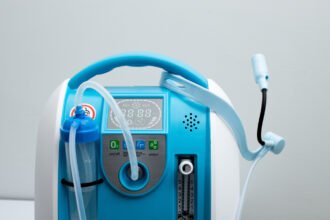Originally published on MedCityNews.com.
 A young diagnostics company has turned a $500,000 SBIR grant it won last year into an assay that it hopes will eventually help researchers and clinicians detect and diagnose type 1 diabetes earlier.
A young diagnostics company has turned a $500,000 SBIR grant it won last year into an assay that it hopes will eventually help researchers and clinicians detect and diagnose type 1 diabetes earlier.
Originally published on MedCityNews.com.
 A young diagnostics company has turned a $500,000 SBIR grant it won last year into an assay that it hopes will eventually help researchers and clinicians detect and diagnose type 1 diabetes earlier.
A young diagnostics company has turned a $500,000 SBIR grant it won last year into an assay that it hopes will eventually help researchers and clinicians detect and diagnose type 1 diabetes earlier.
Genalyte Inc. recently launched its first multiplexed antigen panel for type 1 diabetes. The biomarker panel measures seven autoantibodies associated with the destruction of pancreatic islet cells that’s characteristic of the disease.
The product itself is a disposable silicon chip that goes into the company’s Maverick Detection System. Using a technology called silicon photonics, the device measures protein binding between antibodies and antigens in a single small sample. It eliminates the need for complex sample processing steps associated with current multiplexed testing, like washing, incubation and use of reagents, and delivers results within 15 minutes, the company says.
JDRF estimates that as many as 3 million Americans live with T1D, which is managed with careful attention to eating and activity, and administration of insulin injections. Symptoms often come on quickly, so diagnosis is often made in a hospital or emergency room. A biomarker test could be a helpful tool for clinicians, given that a strong pipeline of new devices and therapies for treatment of diabetes continues to advance.
“The unique capabilities of our Maverick detection platform have the potential to provide researchers and clinicians with tools to detect and track this process from an early stage, when interventions to interrupt the disease process may be feasible,” said Genalyte’s chief scientific officer, Martin Gleeson, in a statement.
For now, though, the panel is only available for research use. “It is our intention to continue to develop the T1D panel with the ultimate goal of providing a lab test and/or point of care test,” Gleeson said in an email. “We cannot disclose timelines at this point in the development cycle.”
Meanwhile, the company is also developing a series of other panels for immune-related disorders and collaborating with the Barbara Davis Diabetes Center at the University of Colorado on more advanced tools for identifying T1D.
The 6-year-old San Diego company is backed by Redmile Group, Claremont Creek Ventures and other private investors.






